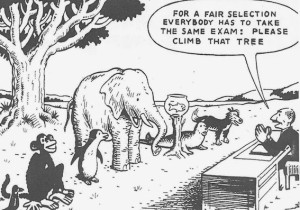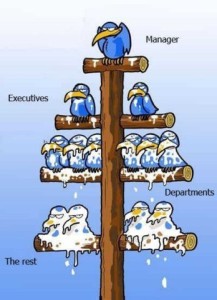Are You an Uneducated Bigot for Disliking Political Correctness?
Despite its roots on the left of politics and as an ironic term to highlight racist and sexist attitudes, ‘political correctness’ was hijacked in the 1990s by the political right wing in the US and successfully used to discredit movements that objected to stereotyping, prejudice and discrimination. Reframing them as hypersensitive do-gooders tapped into everybody’s fear of being an uptight whiner that frankly, no one likes.
Perhaps in some situations it is possible that we are going too far, but for the most part, I agree with Polly Toynbee that “the phrase is an empty, right-wing smear, designed only to elevate its user” and “was born as a coded cover for all who still want to say, Paki, spastic or queer…” Thus complainers of political correctness might easily be reframed as uneducated bigots.
So where is the line between hypersensitive whiners and bigotry? The answer lies in getting educated about matters of inequality. Thus here is a short introduction to stereotyping, prejudice and discrimination to help you on your journey.
Stereotyping. Black athletes are superior; women are more nurturing than men; and white people have the highest IQs. We love to categorise people and put them in boxes; we do this, particularly, through subtle use of language and imagery. It helps us make sense of a world with a potentially overwhelming array of social stimuli. But in doing so, we de-emphasise uniqueness and plant seeds for prejudice and discrimination. This is primarily because of our reliance on generalisations, which are often inaccurate or do not apply to the individual group member.
Not all women are nurturing; not all black athletes win races; and not all white people are intelligent. Furthermore, we may be attributing an incorrect causality to being a member of the group, particularly the biological superiority of one group over another. For example, it is not that being born white makes for a higher IQ, rather white people tend to have higher IQs by virtue of test biases that enable people from a “white culture” to perform better.
Prejudice. You are a man; therefore, you are not nurturing. Here we take a stereotype and apply it to someone without knowing who they uniquely are. We PRE-JUDGE them. Often this happens unconsciously.
For example, when I was a junior pilot, I was sent to a joint Army and Air Force exercise to staff the operations desk. One day whilst my boss was gone, the General and his entourage came by, “Flying Officer, what do you do?” he asked me. “I’m a pilot”, I replied. “Oh, a pilot! What do you fly?”, he said with a slight look of astonishment on his face. “C-130s, sir”, I replied. “Wow, how does a little thing like you fly a big thing like that?” revealing his stereotypes and prejudices in one simple question. “Hydraulics, sir.” I replied.

How to avoid bigotry
Discrimination. You won’t get promoted because you are not smart enough (meaning white or manly or other prejudices and not actually related to the promotion criteria). Discrimination is formed from prejudice. It happens on an individual level and a systemic level.
For example, a business owner who refuses to hire non-whites due to prejudice is engaging in individual discrimination. But an organisation or sector that privileges white people, and therefore their employment and promotion opportunities (often revealed by demographic/diversity statistics) is engaging in systemic discrimination. Systemic discrimination can be the hardest to notice because it may not be deliberate and requires the difficult question, ‘what is it about our culture that prevents [women, indigenous, or other disadvantaged groups] from being promoted?’
It is important to note here that a key way to identify if something is reverse discrimination or not, is to ask whether the policy stems from prejudice. For example, a policy that gives indigenous members access to specialised leadership training is not reverse discrimination if it is a response to a lack of indigenous people in leadership positions. Similarly if the predominant culture is white, different learning and cultural framing may need to take place to give these members the same opportunities as those in the predominant culture and therefore is not reverse discrimination.
With these ideas in mind, we can see how stereotypes lie at the root of prejudice and discrimination. Therefore, if we want to be appreciated as unique individuals and not placed in a box called ‘prejudice’ which then unnecessarily restricts our options in life, then do unto others as you wish to be done unto yourself. It is hard not to categorise everything around us but that doesn’t take away our responsibility to be mindful of how we might be contributing to prejudice and advancing the cause of uneducated bigotry through language that reinforces stereotypes.


